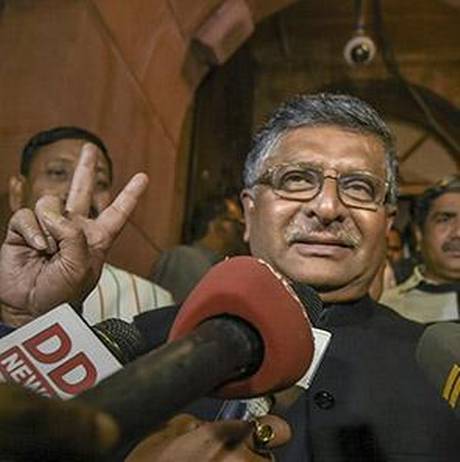Govt. not required by Supreme Court to frame triple talaq law

Majority judgment of the SC in August 2017 had declared the practice null and void; extinct practice is now a crime
There was no pressure whatsoever on the government from the Supreme Court to enact a law on triple talaq.
A close look at the three separate opinions delivered by the Constitution Bench on August 22, 2017 shows that it was only the minority judgment of the Supreme Court which had directed the government to bring an “appropriate legislation” on triple talaq.
The majority opinions of Justices Rohinton Nariman, U.U. Lalit and Justice Kurian Joseph — which became the law of the land and superceded the minority opinion of then Chief Justice J.S. Khehar and Justice S. Abdul Nazeer — had declared triple talaq “manifestly arbitrary”, illegal and void.
Ceased to exist
In short, triple talaq had ceased to exist from August 22, 2017. The majority judgment did not require the government to bring the Muslim Women (Protection of Rights on Marriage) Bill, 2018, making an already extinct triple talaq a crime.
The issue was brought to fore in the Lok Sabha debate on the Bill on Thursday when several members including Revolutionary Socialist Party leader N.K. Premachandran said the Supreme Court has already declared talaq-e-biddat as void and the government’s stand that it enjoined a law to be passed on the matter did not hold much water. “It was a minority judgment of the SC that mentioned a law, the majority opinion did not direct Parliament to frame a law,” he said.
‘Bill is about justice’
“Don’t weigh the Bill on the scales of politics. The Bill is about humanity and justice… What is held to be bad in holy Quran cannot be good in Sharia and in that sense what is bad in theology is bad in law as well,” Union Law Minister Ravi Shankar Prasad said in his response in the Parliament.
The minority opinion of the Supreme Court had nudged the government to consider framing a law which was in tune with the “modern advances” in Muslim personal law globally.
“We hope and expect, that the contemplated legislation will also take into consideration advances in Muslim ‘personal law’, ‘Shariat’, as have been corrected by legislation the world over, even by theocratic Islamic States,” Justice Khehar had written in one of the concluding paragraphs in his judgment.
It had “beseeched” different political parties to keep their individual political gains apart, while considering the necessary measures requiring legislation on triple talaq.
It had injuncted Muslim husbands from declaring triple talaq for six months, giving time for the legislature to enact a law. The injunction would cease to operate had the legislature failed in bringing a law.
But the majority opinion had overawed the minority view of Justices Khehar and Nazeer by striking down instant talaq as not protected by Article 25 (freedom of religion) of the Constitution and violative of Article 14 (right to equality).
Courtesy by : The Hindu



